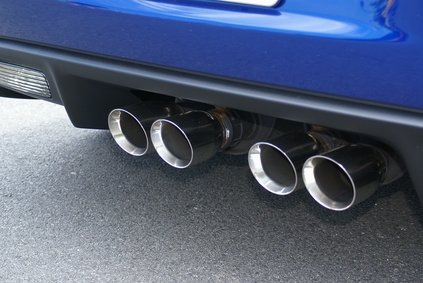
When white smoke is spewing from your exhaust, it is usually an indication that something is burning. The typical culprit is a burning fluid from the vehicle, but other causes are possible. A backyard mechanic can diagnose the problem by observing and smelling the smoke. Locating where it is coming from and accessing how much is billowing out can pin down the problem.
Oil, transmission fluid and antifreeze are the three fluids most likely to be the cause of white smoke coming from your exhaust. Ruptured seals, leaky bolts and blown gaskets can expose oil to hot spots, making it burn. Pinholes or loose lines can cause antifreeze to spray on the engine, while transmission fluid can be sucked into the engine and burn.
Burning oil can be a small leak or a major engine failure. When antifreeze is burning, your engine is deprived of cooling ability, causing it to seize. When transmission fluid burns, the parts inside the transmission are not being properly lubricated, which can cause malfunction and wear of internal parts.
How much smoke is coming out is an indication of the problem, and the smell is another clue. Sometimes the smoke will start white and turn bluish or black; oil of any automotive type burns bluish, and too much fuel makes black smoke. Not enough fuel burns gray, so a careful observation of the smoke can help determine the problem.
Steam can be confused with smoke. The smell aids in correct identification. Look for low coolant level and a peanut butter–looking substance on the oil cap. This is an indication of steam and exhaust gasses in the coolant, which could be a blown head gasket.
Keep your fluids at the appropriate level and change them at the recommended intervals to reduce leaks and maintenance issues. Use the proper types of fluids as well. The wrong transmission fluid can cause your gears to stick and wear down, while the wrong oil can reduce lubrication on the engine and cause internal damage. Improper mixture or wrong type of antifreeze can cause overheating. Consult your owner's manual or a professional for your vehicle's specifics.